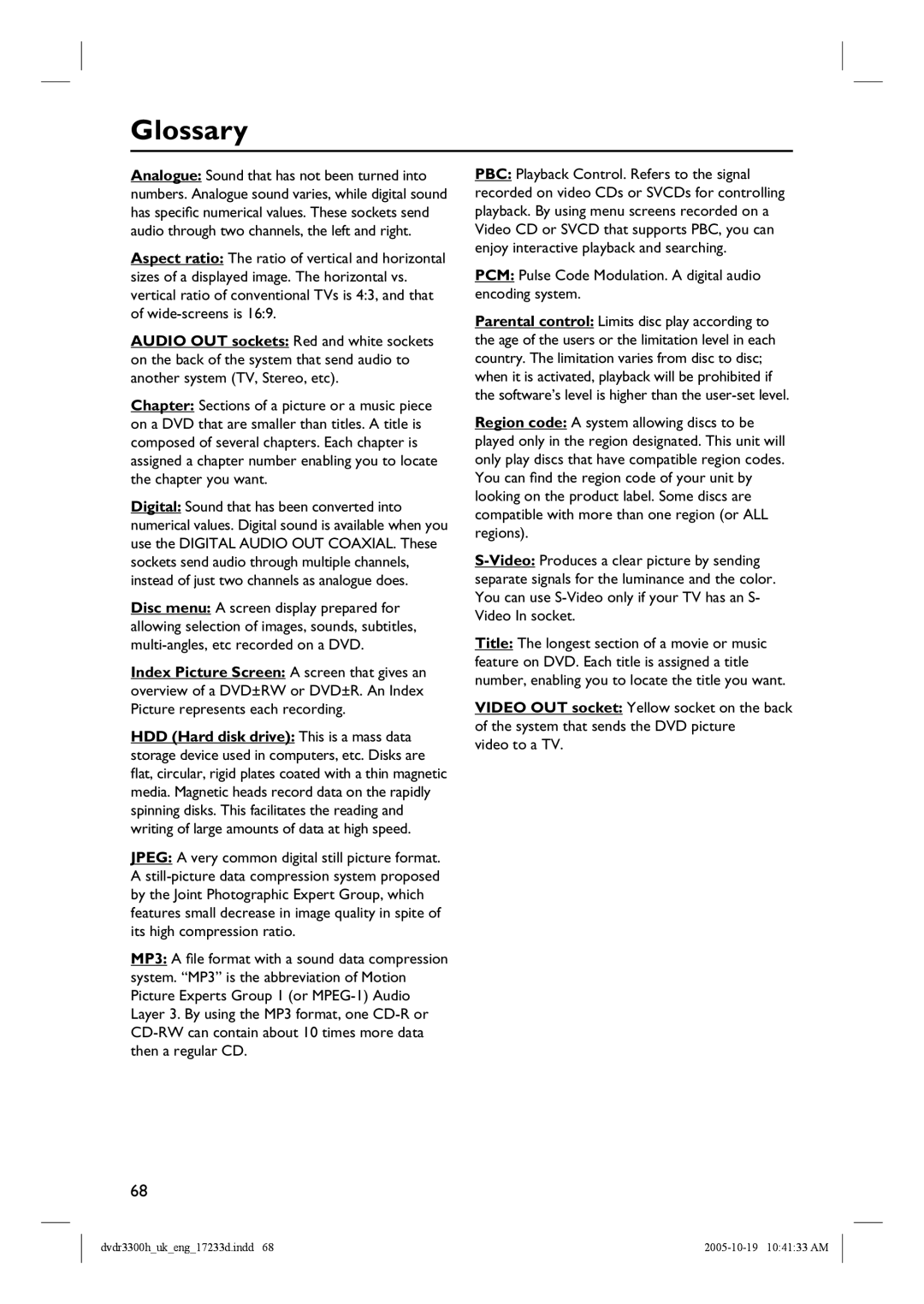
Glossary
Analogue: Sound that has not been turned into numbers. Analogue sound varies, while digital sound has specific numerical values. These sockets send audio through two channels, the left and right.
Aspect ratio: The ratio of vertical and horizontal sizes of a displayed image. The horizontal vs. vertical ratio of conventional TVs is 4:3, and that of
AUDIO OUT sockets: Red and white sockets on the back of the system that send audio to another system (TV, Stereo, etc).
Chapter: Sections of a picture or a music piece on a DVD that are smaller than titles. A title is composed of several chapters. Each chapter is assigned a chapter number enabling you to locate the chapter you want.
Digital: Sound that has been converted into numerical values. Digital sound is available when you use the DIGITAL AUDIO OUT COAXIAL. These sockets send audio through multiple channels, instead of just two channels as analogue does.
Disc menu: A screen display prepared for allowing selection of images, sounds, subtitles,
Index Picture Screen: A screen that gives an overview of a DVD±RW or DVD±R. An Index Picture represents each recording.
HDD (Hard disk drive): This is a mass data storage device used in computers, etc. Disks are flat, circular, rigid plates coated with a thin magnetic media. Magnetic heads record data on the rapidly spinning disks. This facilitates the reading and writing of large amounts of data at high speed.
JPEG: A very common digital still picture format. A
MP3: A file format with a sound data compression system. “MP3” is the abbreviation of Motion Picture Experts Group 1 (or
PBC: Playback Control. Refers to the signal recorded on video CDs or SVCDs for controlling playback. By using menu screens recorded on a Video CD or SVCD that supports PBC, you can enjoy interactive playback and searching.
PCM: Pulse Code Modulation. A digital audio encoding system.
Parental control: Limits disc play according to the age of the users or the limitation level in each country. The limitation varies from disc to disc; when it is activated, playback will be prohibited if the software’s level is higher than the
Region code: A system allowing discs to be played only in the region designated. This unit will only play discs that have compatible region codes. You can find the region code of your unit by looking on the product label. Some discs are compatible with more than one region (or ALL regions).
Title: The longest section of a movie or music feature on DVD. Each title is assigned a title number, enabling you to locate the title you want.
VIDEO OUT socket: Yellow socket on the back of the system that sends the DVD picture
video to a TV.
68
dvdr3300h_uk_eng_17233d.indd 68 |
